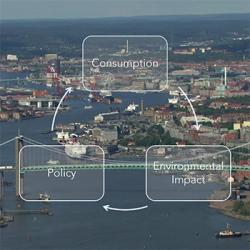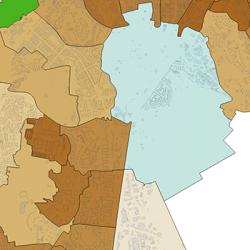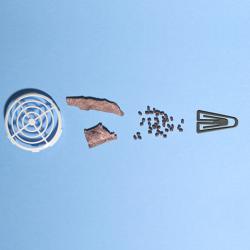Identifying Consumption-Based Environmental Impact Hotspots
Alexandra Westin Licentiate thesis seminar
You are welcome to attend the presentation of the licentiate thesis: Identifying Consumption-Based Environmental Impact Hotspots: Development of a hybrid MFA-LCA method to find high impact product groups in a region.
A lighter lunch will be served at ACEs kitchenette Room 387 on the 3rd floor.
Date: 2018-03-20
Place: Lecture hall SB-H5, SB-huset, Sven Hultins gata 6, Göteborg
Time: 09.00-12.00
Registration: Please let Ingrid know If you are attending the lunch (and any allergies) by March 15, ingrid.engstrom@chalmers.se.
Examinor: Sebastien Rauch
Supervisor: Yuliya Kalmykova
Discussion leader: Daniel Beat Müller, NTNU
Abstract
City populations are growing as increased numbers of people migrate from rural to metropolitan areas. Meanwhile, growing consumption habits have led to increased use of goods in these urban areas, which can have an environmental impact. Cities have become consumption hubs, where more people consume more goods and thereby consume more resources, resulting in high environmental impact. Actions to reverse this trend must be taken at the national, regional,
and urban levels. The aim of this licentiate thesis is to provide an analytical framework to identify priority product groups with high environmental impact to assist decision-makers at any level to establish action plans in order to properly achieve sustainability targets. A hotspot identification method has been developed and is demonstrated using data from three Swedish municipalities: Stockholm, Gothenburg, Malmo, and using data on the national level for Sweden as a whole.
Region-specific consumption data from a material flow analysis database was combined with life cycle assessment data to quantify the environmental impact of consumption using 71 representative products. Consumption impacts varied among the cities, but showed several commonalities. Some product types like electronics, fuel, and machinery should be part of a nation-wide consumption reduction program, whereas others like vehicles could be part of local efforts. The hotspots for Stockholm were fuel, machinery, and electronics; Gothenburg hotspots were fuel, machinery, electronics, and vehicles; Malmo hotspots were fuel and electronics: Sweden hotspots were meat, fuel, machinery and electronics.
Keywords: consumption, hotspots, hybrid MFA-LCA, environmental impact
Read more about Alexandra Westin's project Municipal Environmental Impact







